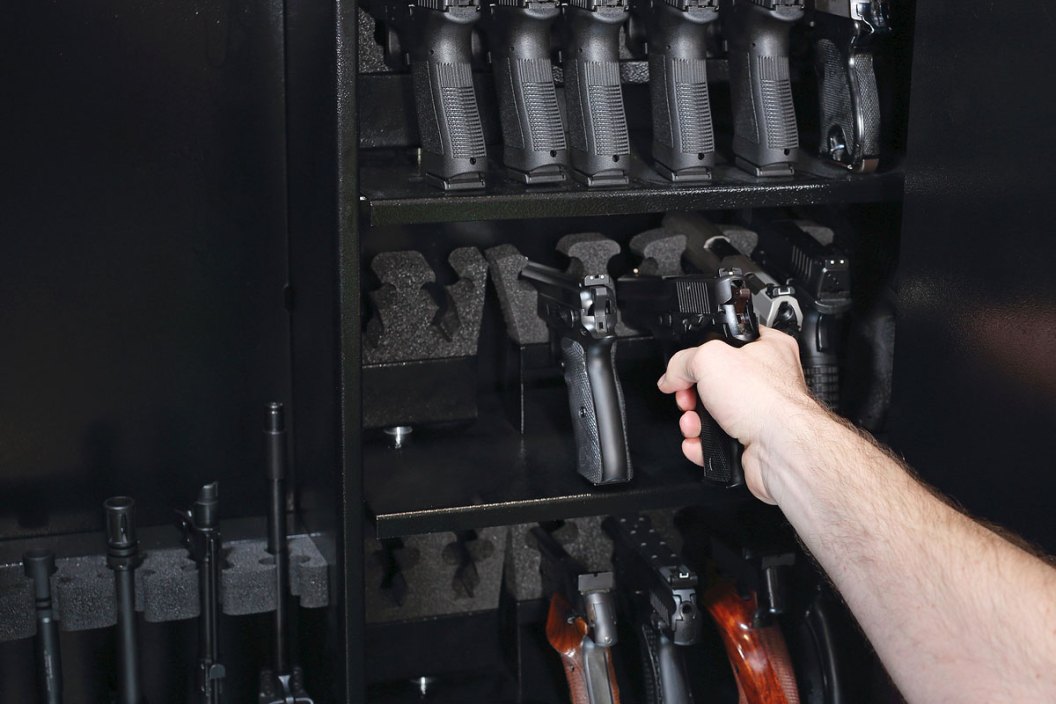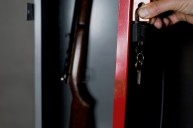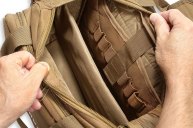Here are some guidelines for fighting the battle against moisture, corrosion and theft.
Storing guns and ammo is an important consideration for all gun owners, old and new.
Not only is it important to keep your guns safe from other people, but also rust, corrosion and general wear and tear.
Let's take a closer look.
Getting Started
When you own a single pistol, a simple ammo can is just fine for ammo storage. A simple lockbox with a desiccant packet inside is fine for storing that single firearm. But when you get more, or a long gun or two—and you will—you'll have to upgrade. That means shopping for genuine gun cabinets and gun safes, as well as accessories to go along with them.
Many people don't have homes that allow them to have a gun safe or other gun storage on their main floor. If your safe is in the basement or you live in a location with high humidity, you're going to also need more than desiccant packs.
A dehumidifier is essential, not just for the room, but in the safe as well. Several companies make battery-powered dehumidifiers that are remarkably effective for this very purpose.
If a gun isn't going to be pulled out of the safe for a while, it's a good idea to keep it in a silicone-treated gun sock. This will protect it from banging against anything in the safe or cabinet, and they do a great job protecting against moisture—plus they're affordable.
Ammunition Storage
Things can go bad if you don't store ammunition correctly in a humid climate, too. When storing ammo that you will be using soon, keeping it in an ammo box with a few desiccant packets—like the large silica ones you can find online—is fine, but for long-term storage, you want to make sure that gun powder doesn't absorb ambient moisture and that those brass casings don't corrode.
Keep them as dry as possible. If you can, get them out of the paper boxes they came in, which can absorb and hold moisture, and store them in plastic containers with rubber seals. There are a lot of plastic ammunition cans available with rubber seals as well, and most also are made to use padlocks.
For all guns and ammo, you want to avoid extreme heat and extreme cold. If you can put your gun safe in a climate-controlled room, you should. This will extend the shelf life of your ammo, and keep your guns and their parts in tip-top shape.
Guns with wood stocks can do weird things in extreme temperatures, and there are rubber and plastic components that can become brittle with wild temperature fluctuations.
Worst-Case Scenario
If you're looking to store for a particularly long time—as in, you'll only be opening this up in case of the collapse of society itself—you should take some extra steps.
Before putting it away for the end times, make sure a firearm is thoroughly cleaned and then apply a heavy coat of oil to all metal parts. Think of the cosmoline that's sometimes caked on a new gun. That's what you're going for.
Wrap the gun in an oiled cloth, and then securely in plastic finished with tape.
Then, make sure the container you store it in is as air- and moisture-proof as possible. Same goes for any ultra-long-term ammo storage containers.
Warnings
- The plastic foam-lined cases guns come in are not storage containers. That foam will absorb moisture from the air and hold it next to your firearm, which is a very bad thing. While they're great for travel and those trips to the range, do not rely on foam gun boxes as storage solutions.
- If you keep a home-defense gun in a safe, be absolutely sure you can access it quickly in the dark, and practice doing so frequently.
- Never put a gun away after handling it without wiping it down with an oiled cloth. Your hands leave a lot of gunk behind, even if you don't think they do.
NEXT: PENNSYLVANIA CHURCH DENIES RAFFLE WINNER OF FISHING TRIP BECAUSE SHE'S A WOMAN
WATCH





